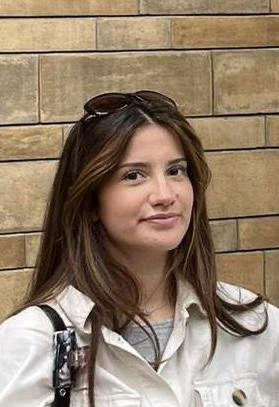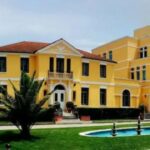By Nancy Hoxha
In the 17th and 18th centuries, Europe experienced what we now call the Enlightenment — a movement that reshaped the way humanity thought about reason, freedom, and progress. But what does it truly mean to be “enlightened”?
Immanuel Kant described enlightenment as “man’s emergence from his self-incurred immaturity.” By “immaturity,” he did not mean ignorance or lack of intelligence, but a refusal to use one’s own understanding without external guidance. For Kant, dependence on others — on tradition, religion, or authority — was a voluntary surrender of reason, born out of what he called “laziness and cowardice.”
Kant’s challenge was simple yet radical: think for yourself. But if we ask whether his adopted motto, Sapere Aude — “dare to know” — has been realised today, what would the answer be? Have we, as a society, truly emerged from our self-imposed immaturity?
To explore that question, let us look not at Europe as a whole, but at one of its oldest nations — Albania.
Philosophers such as Bernard Picart and Jean Frédéric Bernard once examined how religion shaped human imagination and social life whilst also questioning it entirely. To understand any society’s progress, we must look at what still influences the way its people think and behave — and in Albania, religion and culture remain deeply intertwined.
This is not an argument against faith. It is, rather, an observation that Albanians often blur the line between religion and culture, holding onto outdated customs that no longer serve collective growth. As anthropologist Clifford Geertz argued, religion and culture are intertwined systems of meaning. Yet it is worth remembering that Albanians existed long before organized religion — before the Ottomans, before Christianity, even before written scripture.
So why, in a country that declared itself the first atheist state in 1967, do so many still defend social limitations in the name of “tradition” or “culture”? Why are religiously influenced gender expectations still treated as cultural norms?
When “culture” becomes a shield to preserve inequality or passivity, it stops being culture and becomes an excuse for stagnation.
If someone like Mira Murati — the Albanian-born CEO of OpenAI — had been raised and confined within the expectations many Albanian women still face, would she have had the same opportunity to shape the future of technology? Or would she, like so many others, have been expected to be an obedient nuse — a “good wife,” rather than a visionary leader?
This contradiction is telling. Albania celebrates progress when it suits its pride but defends regressiveness when it challenges comfort. We proudly appoint an AI Minister, yet resist basic reforms in gender equality, education, and freedom of expression. When did artificial intelligence become a part of Albanian “culture”?
The irony is that Albania’s government embraces the language of innovation while society still hesitates to embrace intellectual independence. The result is a kind of collective immaturity: a nation that praises enlightenment but avoids the discomfort of questioning authority.
Much like the monarchies that the French revolted against in 1789, today’s Albania is led by a political class that benefits from the people’s hesitation to challenge it. We call this “respect for authority” or “our culture,” but Kant would have called it voluntary immaturity.
The Albanian ideal of the strong male leader persists, as does the belief that a woman’s primary duty lies in childcare and obedience. These notions are defended as “tradition,” yet they betray the very essence of what Albanians have historically fought for — independence, integrity, and dignity.
It is a tragic irony: a people who preserved their alphabet and language through centuries of occupation now risk losing their intellectual independence to apathy and political manipulation.
The Enlightenment We Still Need
Kant acknowledged that not everyone would achieve enlightenment — that only the “extraordinary individual” could see beyond the limits imposed by custom and fear. But he also believed that progress was possible if society valued education, dialogue, and courage.
Albania, like much of the modern world, stands at a crossroads between imitation and authenticity. Its people are brilliant, creative, and capable — yet too often silenced by the weight of unexamined tradition and performative modernity.
Enlightenment is not a historical event but a continuous process — one that demands self-questioning, courage, and intellectual honesty. It is not achieved through political slogans or symbolic reforms, but through a collective decision to think freely.
So perhaps the question is not whether an AI could replace Edi Rama or govern more efficiently, but whether Albanians themselves can awaken the natural intelligence that already exists within them.
True progress will not come from algorithms or imported modernity, but from the courage to confront the contradictions that define us — to separate what is cultural from what is comfortable, what is traditional from what is merely habitual.
The Enlightenment was never about destroying tradition; it was about questioning what no longer served humanity. Albania’s challenge today is to do the same — to dare to think independently, to reclaim integrity as its true tradition, and to believe once again that knowledge is not a threat to culture but its highest form.
Sapere Aude — dare to know — remains as relevant in Albania today as it was in Königsberg in 1784.








